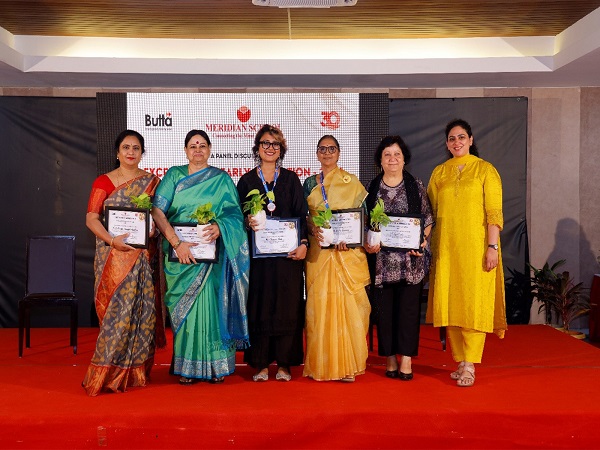In the 21st century, urbanization is accelerating at an unprecedented pace. As cities grapple with rising populations, strained infrastructure, and environmental concerns, the concept of smart cities has emerged as a revolutionary solution. A smart city uses technology and data to enhance the quality of life for its residents, streamline operations, and promote sustainable growth. In this article, we delve into the key developments in urban technology that are powering the rise of smart cities around the world, with a special focus on how these innovations are shaping the future of urban living.
What Is a Smart City?
A smart city integrates information and communication technologies (ICT) into urban infrastructure to improve efficiency, connectivity, and sustainability. This includes everything from smart traffic systems and waste management to digital governance and citizen engagement platforms.
Key characteristics of a smart city include:
- Real-time data collection and analysis
- Use of Internet of Things (IoT) devices
- Smart energy and water management
- Efficient public transportation
- E-governance and digital services
- Sustainability and low environmental impact
Major Developments Driving Smart Cities
1. Internet of Things (IoT)
IoT plays a foundational role in smart cities. Sensors embedded in roads, buildings, and public spaces collect data that can be analyzed to make real-time decisions. For example, traffic flow can be adjusted dynamically to reduce congestion.
2. 5G Connectivity
The deployment of 5G networks ensures ultra-fast internet speeds and low latency, enabling seamless communication between millions of connected devices. This is essential for real-time data sharing and autonomous systems.
3. Smart Grids and Energy Systems
Smart grids help cities manage energy more efficiently by balancing supply and demand, integrating renewable energy sources, and providing real-time energy usage data to both providers and consumers.
4. Intelligent Transportation Systems
From smart traffic lights to autonomous public transport, urban mobility is being transformed. These systems reduce travel time, fuel consumption, and emissions.
5. AI and Big Data Analytics
Artificial Intelligence (AI) and big data are used to analyze vast amounts of information gathered from city sensors. This helps city planners make informed decisions on infrastructure, public safety, and environmental management.
6. Digital Governance
Smart cities emphasize transparency and citizen participation. E-governance platforms allow residents to access services, pay bills, and register complaints online, making interactions with the government more efficient and accessible.
7. Sustainable Infrastructure
Green buildings, renewable energy installations, and eco-friendly public transport systems are integral to smart cities. These initiatives aim to reduce the carbon footprint of urban areas.
Global Examples of Smart Cities
1. Singapore
Singapore is often cited as the world’s smartest city. It uses sensors and cameras throughout the city to monitor traffic, weather, and pollution. The Smart Nation initiative focuses on digital identity, e-payments, and telehealth.
2. Barcelona, Spain
Barcelona integrates IoT in public services such as street lighting, waste collection, and parking. It also offers an extensive e-governance platform to engage citizens in policymaking.
3. Amsterdam, Netherlands
Amsterdam focuses on sustainability through smart grids, electric vehicles, and data-driven water management systems. The city promotes innovation by collaborating with tech startups.
4. Pune, India
Pune has been developing smart city infrastructure under India’s Smart Cities Mission. Projects include integrated traffic management, smart street lighting, and digital service delivery platforms.
Benefits of Smart Cities
- Improved public services and infrastructure
- Enhanced safety through smart surveillance
- Environmental sustainability
- Efficient resource management
- Better quality of life for residents
- Increased civic engagement
Challenges in Building Smart Cities
Despite the potential, several challenges hinder the growth of smart cities:
- High implementation and maintenance costs
- Data privacy and cybersecurity concerns
- Digital divide among populations
- Interoperability of different technologies
- Need for skilled manpower
Future Outlook
As technology continues to evolve, smart cities will become more adaptive and personalized. Integration of AI, machine learning, and augmented reality could redefine urban living. Governments, tech companies, and citizens must work collaboratively to ensure these advancements are inclusive and sustainable.
Conclusion
Smart cities represent the future of urban development. By leveraging cutting-edge technologies, cities can become more efficient, livable, and sustainable. However, their success depends on inclusive planning, responsible data use, and continuous innovation. As more cities embark on the smart journey, the dream of a connected, intelligent, and resilient urban future becomes a tangible reality.
5 Most Asked Questions About Smart Cities
Q1. What technologies are essential for building a smart city?
Answer: Core technologies include IoT, AI, 5G, cloud computing, big data analytics, and smart grids.
Q2. How do smart cities improve daily life for citizens?
Answer: They provide better traffic flow, efficient waste management, cleaner air, safer neighborhoods, and easier access to public services.
Q3. Are smart cities environmentally friendly?
Answer: Yes, they aim to reduce carbon emissions through energy-efficient buildings, green transportation, and sustainable resource usage.
Q4. What are the risks associated with smart cities?
Answer: Risks include cyberattacks, misuse of personal data, and potential surveillance overreach if not properly regulated.
Q5. Can developing countries implement smart cities?
Answer: Yes, with phased implementation, public-private partnerships, and global support, even developing countries can adopt smart city technologies.











